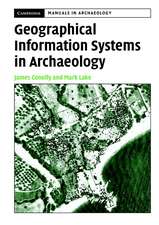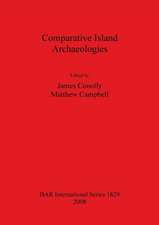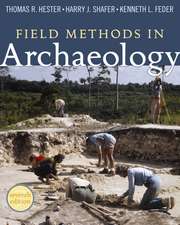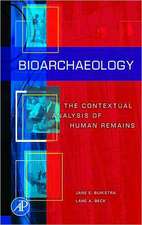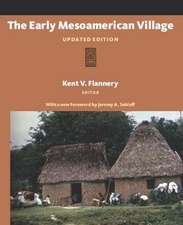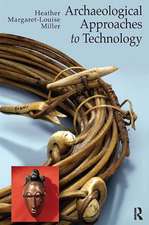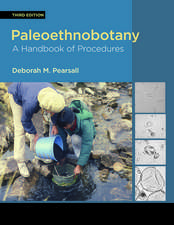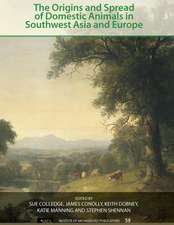The Origins and Spread of Domestic Plants in Southwest Asia and Europe: UCL Institute of Archaeology Publications
Editat de Sue Colledge, James Conollyen Limba Engleză Paperback – 18 dec 2017
| Toate formatele și edițiile | Preț | Express |
|---|---|---|
| Paperback (1) | 356.44 lei 6-8 săpt. | |
| Taylor & Francis – 18 dec 2017 | 356.44 lei 6-8 săpt. | |
| Hardback (1) | 1082.83 lei 6-8 săpt. | |
| Taylor & Francis – 10 aug 2007 | 1082.83 lei 6-8 săpt. |
Din seria UCL Institute of Archaeology Publications
- 18%
 Preț: 782.44 lei
Preț: 782.44 lei -
 Preț: 413.33 lei
Preț: 413.33 lei -
 Preț: 312.56 lei
Preț: 312.56 lei -
 Preț: 288.80 lei
Preț: 288.80 lei -
 Preț: 356.44 lei
Preț: 356.44 lei - 12%
 Preț: 340.69 lei
Preț: 340.69 lei -
 Preț: 502.75 lei
Preț: 502.75 lei - 31%
 Preț: 765.68 lei
Preț: 765.68 lei - 16%
 Preț: 245.83 lei
Preț: 245.83 lei -
 Preț: 352.41 lei
Preț: 352.41 lei -
 Preț: 349.80 lei
Preț: 349.80 lei - 25%
 Preț: 1022.48 lei
Preț: 1022.48 lei -
 Preț: 386.31 lei
Preț: 386.31 lei -
 Preț: 414.53 lei
Preț: 414.53 lei - 25%
 Preț: 1005.92 lei
Preț: 1005.92 lei -
 Preț: 370.87 lei
Preț: 370.87 lei -
 Preț: 384.02 lei
Preț: 384.02 lei - 15%
 Preț: 582.24 lei
Preț: 582.24 lei -
 Preț: 368.76 lei
Preț: 368.76 lei -
 Preț: 346.71 lei
Preț: 346.71 lei - 17%
 Preț: 240.42 lei
Preț: 240.42 lei - 15%
 Preț: 249.80 lei
Preț: 249.80 lei - 26%
 Preț: 1044.60 lei
Preț: 1044.60 lei - 18%
 Preț: 782.44 lei
Preț: 782.44 lei - 29%
 Preț: 1020.09 lei
Preț: 1020.09 lei - 21%
 Preț: 364.86 lei
Preț: 364.86 lei -
 Preț: 349.71 lei
Preț: 349.71 lei - 15%
 Preț: 669.94 lei
Preț: 669.94 lei - 18%
 Preț: 1128.91 lei
Preț: 1128.91 lei - 18%
 Preț: 1082.83 lei
Preț: 1082.83 lei -
 Preț: 389.66 lei
Preț: 389.66 lei - 17%
 Preț: 247.40 lei
Preț: 247.40 lei -
 Preț: 354.71 lei
Preț: 354.71 lei - 19%
 Preț: 241.15 lei
Preț: 241.15 lei - 16%
 Preț: 264.12 lei
Preț: 264.12 lei - 17%
 Preț: 246.84 lei
Preț: 246.84 lei - 26%
 Preț: 1014.74 lei
Preț: 1014.74 lei -
 Preț: 349.80 lei
Preț: 349.80 lei
Preț: 356.44 lei
Nou
Puncte Express: 535
Preț estimativ în valută:
68.21€ • 71.39$ • 56.77£
68.21€ • 71.39$ • 56.77£
Carte tipărită la comandă
Livrare economică 01-15 aprilie
Preluare comenzi: 021 569.72.76
Specificații
ISBN-13: 9780815347491
ISBN-10: 0815347499
Pagini: 462
Dimensiuni: 219 x 276 x 31 mm
Greutate: 0.45 kg
Ediția:1
Editura: Taylor & Francis
Colecția Routledge
Seria UCL Institute of Archaeology Publications
Locul publicării:Oxford, United Kingdom
ISBN-10: 0815347499
Pagini: 462
Dimensiuni: 219 x 276 x 31 mm
Greutate: 0.45 kg
Ediția:1
Editura: Taylor & Francis
Colecția Routledge
Seria UCL Institute of Archaeology Publications
Locul publicării:Oxford, United Kingdom
Recenzii
"Drawing from those presented at a December 2003 conference, these 23 papers focus primarily on the archaeobotanical evidence provided by research in early Neolithic crop-based agriculture. Convinced the practice began in southwest Asia, the articles trace the ways crops and farming practices developed and spread westward, giving this a pan-region perspective. Topics include regional contributions to the genesis of farming, adoption of farming in the Euphrates valley and the Fertile Crescent, the evidence for the origin of farming on Cyprus and Crete, archaeobotanical evidence of agriculture in the Aegean and Bulgaria, cultivated plants in the region between the Carpathians and Dniester, Neolithic agriculture in Italy and the West Mediterranean, and evidence from Spain, the Bay of Biscay, Austria, the Alpine foreland and the Alps, Slovakia, Poland, The Netherlands, Germany, Scandinavia and Britain. The editors include a very useful index of plant names." -Book News
Cuprins
1: Diverse origins: regional contributions to the genesis of farming; 2: The adoption of farming and the beginnings of the Neolithic in the Euphrates valley: cereal exploitation between the 12th and 8th millennia cal BC; 3: East of Eden? A consideration of neolithic crop spectra in the eastern Fertile Crescent and beyond; 4: A review and synthesis of the evidence for the origins of farming on Cyprus and Crete; 5: Transitions to agriculture in the Aegean: the archaeobotanical evidence; 6: Archaeobotanical data from the early Neolithic of Bulgaria; 7: The spread of cultivated plants in the region between the Carpathians and Dniester, 6th–4th millennia cal BC; 8: Seed and fruit remains associated with neolithic origins in the Carpathian Basin; 9: Neolithic agriculture in Italy: an update of archaeobotanical data with particular emphasis on northern settlements; 10: Crop evolution: new evidence from the Neolithic of west Mediterranean Europe; 11: Early agriculture in central and southern Spain; 12: First farmers along the coast of the Bay of Biscay; 13: Early agriculture and subsistence in Austria: a review of neolithic plant records; 14: Neolithic plant economies in the northern Alpine Foreland from 5500–3500 cal BC; 15: Archaeobotanical perspectives on the beginning of agriculture north of the Alps; 16: Early farming in Slovakia: an archaeobotanical perspective; 17: Early neolithic agriculture in south Poland as reconstructed from archaeobotanical plant remains; 18: Neolithic plant husbandry in the Kujawy region of central Poland; 19: Nature or culture? Cereal crops raised by neolithic farmers on Dutch loess soils; 20: The plant remains from the Neolithic Funnel Beaker site of Wangels in Holsatia, northern Germany 1; 21: Exploitation of plant resources in the Mesolithic and Neolithic of southern Scandinavia: from gathering to harvesting; 22: Reconsidering the evidence: towards an understanding of the social contexts of subsistence production in neolithic Britain; 23: On the importance of cereal cultivation in the British Neolithic
Descriere
Leading scholars demonstrate the importance of archaeobotanical evidence in the understanding of the spread of agriculture in southwest Asia and Europe.





